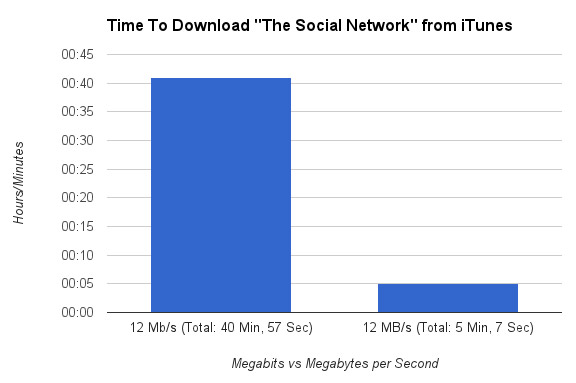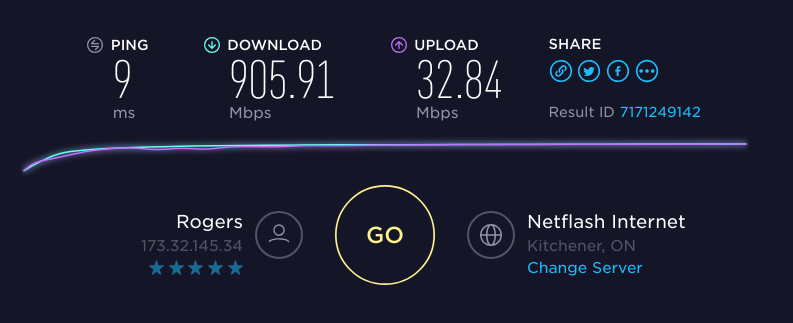How to Select the Right Internet Plan Based Upon Megabits Per Second
How to Select the Right Internet Plan Based Upon Megabits Per Second
Blog Article
Exactly How Megabits Per Second Influence Your Online Activities
The idea of megabits per second (Mbps) plays an essential function fit our on-line experiences. As electronic tasks multiply, recognizing the effects of Mbps on gaming, video, and streaming conferencing comes to be significantly vital. Higher Mbps can improve efficiency and minimize disturbances, while insufficient speeds might promote frustration and inadequacy. Assessing your house's certain demands in connection with these rates is necessary, especially as numerous gadgets try bandwidth. The nuances of how Mbps affects numerous online activities require further expedition, especially as our reliance on electronic connection proceeds to evolve.
Recognizing Megabits Per Second
When thinking about internet speed, it's essential to comprehend the principle of megabits per second (Mbps), which acts as a conventional dimension for information transfer rates. This metric quantifies just how much data can be transmitted over a web connection in one second, giving a clear understanding of efficiency capacities - Megabits Per Second. For context, one megabit is equal to one million bits, and Mbps is generally made use of to reveal transmission capacity for various on the internet activities
A greater Mbps shows a quicker internet connection, enabling users to perform jobs such as downloading documents, browsing websites, and taking part in on the internet gaming a lot more efficiently. For example, common browsing calls for around 1-5 Mbps, while streaming high-def video might demand 5-25 Mbps. Recognizing these requirements is vital for identifying the suitable web speed needed for specific activities.
Furthermore, the variety of gadgets connected to a network can impact general performance. Several individuals streaming, gaming, or downloading all at once can stress offered data transfer, resulting in slower speeds - Megabits Per Second. Reviewing personal online routines and needs is vital in picking a web plan that lines up with one's demands, ensuring a seamless digital experience
Streaming and Buffering Issues
Streaming high-definition web content has actually ended up being a staple of modern online home entertainment, yet it is usually come with by discouraging buffering concerns. These disruptions can substantially interfere with the checking out experience, leading to discontentment and potential loss of audience involvement. Buffering takes place when the data sent from the streaming solution is not received quickly enough to preserve a smooth playback, commonly because of insufficient net rate gauged in megabits per second (Mbps)

Additionally, real-time streaming can be impacted by network congestion, which occurs when several tools share the very same data transfer. Subsequently, optimizing connection speed and making certain appropriate Mbps is essential for a seamless streaming experience. As streaming solutions proceed to progress, recognizing the influence of Mbps on buffering issues stays critical for consumers looking for uninterrupted amusement.
Online Video Gaming Performance
The influence of web rate on online activities prolongs past streaming, considerably influencing on the internet gaming efficiency. In competitive video gaming, reduced latency and high data transfer are important for a smooth experience. A rapid link decreases lag, permitting gamers to respond quickly to in-game events, which can be the difference in between success and defeat.
Bandwidth, determined in megabits per second (Mbps), plays an important function in sustaining numerous devices and gaming systems simultaneously. Not enough transmission capacity can bring about dropped connections or reduced game high quality, adversely impacting gameplay. As an example, on the internet multiplayer games need considerable information transfer, especially throughout peak video gaming hours when countless gamers are online.
Fast-paced first-person shooters demand higher rates to keep responsiveness, while turn-based technique video games might function fairly well on lower rates. As on the internet gaming continues to advance, with raising graphical fidelity and even more complex multiplayer environments, the need for higher Mbps will only escalate.
Video Clip Conferencing High Quality
In today's electronic landscape, video conferencing quality is greatly influenced by net speed, particularly in regards to data transfer and latency. High-quality video clip calls need sufficient transmission capacity to transfer sound and video information effortlessly. Typically, a minimum of 1.5 Mbps upload and download rates is recommended for typical meaning video, while high-def video clip conferencing normally requires at least 3 Mbps.
Latency, or the delay in between sending out and receiving data, additionally plays a vital role in the customer experience. Greater latency can lead to resemble, lag, and disjointed interactions, which can impede partnership and engagement throughout conferences.
In addition, several participants in a video seminar can stress available bandwidth, demanding even higher speeds. Network congestion, usually brought on by simultaneous tasks like streaming or downloading, can further degrade video top quality. Therefore, for companies depending visit this page on video conferencing for remote collaboration, comprehending the relationship between megabits per general and second interaction high quality is important for keeping productivity and improving online communications.
Picking the Right Net Plan
Choosing an appropriate net strategy is essential for ensuring ideal performance in various on the internet activities, particularly in setups that demand high data transfer, such as video clip conferencing and online pc gaming. Megabits Per Second. When thinking about a net strategy, it is necessary to review both the rate and data allowance to match your details usage demands
For households with numerous users participating in simultaneous tasks, a strategy supplying higher megabits per second (Mbps) is recommended. Generally, a minimum of 25 Mbps appropriates for standard streaming and browsing, while strategies exceeding 100 Mbps are better for more extensive tasks. Furthermore, consider the nature of your online tasks; video clip conferencing needs a minimum of 1.5 Mbps post speed, while on-line video gaming may require a lower latency but consistent link.
It is additionally crucial to analyze your data cap. Unrestricted data strategies can stop throttling and interruptions, specifically if hefty use is prepared for. Finally, research study provider in your location, as schedule and prices can vary. By thoughtfully choosing an internet plan tailored to your demands, you can boost your on-line experience, ensuring smooth, uninterrupted accessibility to your preferred activities.
Verdict
In conclusion, the importance of megabits per second (Mbps) in forming on-line activities can not be overstated. A comprehensive understanding of individual or family Mbps needs is necessary for selecting an appropriate internet plan that properly sustains varied online tasks and individual needs.

Usually, a minimum of 25 Mbps is appropriate for typical streaming and surfing, while plans surpassing 100 Mbps are more effective for even Recommended Site more extensive tasks. Additionally, consider the nature of your online activities; video conferencing calls for at least 1.5 Mbps submit speed, while on the internet gaming may require a reduced latency but consistent connection.
Report this page